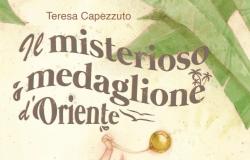Seventies born from a huge crash, defined as “years of lead” but in fact years of dream and pleasure to take control of their own destinies by believing in man and social justice. Calabria was very involved in this in various geographical areas. I know and fear the “fighters and veterans” effect but as an investigator of the subject the knowledge effect has its value, especially when it is used well.
Necessary preamble to point out a theatrical show, a recent high-profile journalistic controversy and a well-made book marked by a clear common thread.
I finally saw the extraordinary show “Via del Popolo” by Scena Verticale recovering the vision at Pagani in Campania, where the interpreter and director awaits at the end of the show Saverio La Ruina there was a small crowd as happens at certain concerts.
The piece praised by critics and awarded the Ubu prize for writing quality in the form of a monologue tells the story of the transformations of a street in Castrovillari through the author’s biography. Understandable dialect phrases and montage of situations enchant the audience on the story of the road that sees the farmer father open a bar offering many reflections and laughs through gritted teeth. I had a contextual gasp halfway through the performance when La Ruina talks about the coming of the Living Theater to Castrovillari with Julian Beck in the lead, the maximum expression of international guerrilla theater played on the streets in those years. I too, at just 14 years old, had that experience in the same period on the streets of Cosenza, when the anarcho-pacifist ensemble was called by councilor Manacorda. I didn’t remember about the incursion into Castrovillari, which certainly had an impact on the birth of “Scena Verticale”.
Saverio also stages the MSI headquarters, owned by his father, and rented to the “fascists”, hidden from his companions at the demonstrations with hilarious realism. The wind of defeat and victory also passes on the stage while the music of “Hasta siempre Comandante” in an anti-rhetorical form arouses attention towards the hoes of the people who no longer till the land and of today which has turned off the lights of every Via del Popolo .

Giuliano Santoro he is, instead, a political reporter of Manifest, among the first in Italy to grasp the significance of grillism in its infancy. Cosentino by training, son of Annarosa Macrì, father from Reggio Calabria, Santoro has a fervent and militant passion for the Clash, and took the opportunity with the first Italian reunion of the CCCP in Bologna, where protests over the cost of the ticket were announced, to draw a parallel between the group’s famous performance by Joe Strummer in 1980 in Piazza Maggiore and the next venture by Ferretti and his companions.
Excellent philological article and reconstruction on the political value that the attempt to recover the Bolognese spreaders of 1977 who had contested weapons and creativity in the hands of the “produce, consume crack” of the Berlinguerians by bringing the tanks to Via Zamboni had in the Disneyland of the Italian PCI by Cossiga. Santoro makes no mistakes starting from the organization of Mauro Felicori, operational head of the PCI network in 1980 and today Bonaccini’s councilor for culture with Renzian support. But there’s more. Because Santoro, a well-documented journalist, went to find a chronicle of the Unità from the time of a very young Michela Serra who demolished movementist thesis with accompanying music. The Manifesto article ended up under the nose of the famous journalist’s wife who, amused, asked her husband “But what did you write in 1980 about the Clash concert in Bologna?”. Serra did not let the issue slip away and wrote a response of cultural belonging appeared in his newsletter “Ok Boomer”. A controversy like those of the Seventies when Unity and Continuous Struggle competed for the word of truth.
Closes the circle with a red ray a splendid novel by Fabio Cuzzola from Reggio, “Kill the DJ. The Seventy-seven on the banks of the Strait”. (Dinghys and Landings, 12 euros). Cuzzola was born after that period, but he is more than a scholar of the subject. He is credited with having raised the oblivion of the story of the five Calabrian anarchists who died in mysterious circumstances in the plots linked to the Piazza Fontana massacre, he also published one of the most rigorous studies on the Reggio Calabria Revolt together with the collective novelistic activity by Lou Palanca.
The last title, written in flowing form for 90 pages, is a sort of polyphonic radio drama supported by a powerful period soundtrack. Historical events that actually happened are shaped in a deconstructed noir that restores an era on a complicated parallel, that between Reggio and Messina (but there are also the Greece of the Colonels, Africa, Naples) in a moment in which the mysteries are contaminated and they contrast with the youthful passion of the new time. An innovative record shop with vinyl coming from all over the world (millennials remember that the Internet did not exist) is at the center of the scene between the ‘Ndrangheta and the powers that be. The free radios broadcast “Rebel” by John Miles, the Greeks are fascists but there is no shortage of the Greek anarchist revolutionary who goes to be a democratic lawyer on the right side. Two DJs will be killed, as happened in reality without any proven culprit. The misdeeds of Don Stilo appear, the priest responsible for the Christian Democratic diplomacy and embarrassing compromises. The protagonist is Calabria, always weak against the powerful. A glimpse of the era with Pianca, striker of Reggina, Max Bianchi of Viola Basket and the passage through the record shop of Marcello Fiasconaro, rugby player and unforgettable world record holder in the 800m. Berimbau is a youthful planet of those who had thought of life differently and not behind a desk living on cultural consumption and the tendencies of personnel who were still political. The madmen released on the streets and the death of Francisco Franco, who some confuse with Ciccio Franco because where he presses the Cuzzola button the Reggio Calabria Revolt it is always there to remind us that that was not a suburban story but the largest mass rebellion that occurred in Europe at that time. Freda, Borghese passed and then came the Santa, a plant that still thrives today in elegant secluded attics.
The sunset over the Strait from Punta Pellaro, the Jonica to be crossed with a train on a single track and the many references to Magna Graecia are the background scenarios of a period which even in Reggio, a city of mysteries and often dangerous conservative retrospects, silenced desires and filled the streets, the beaches, and the clubs with dancing and partying. Reading the novel is a pleasant comfort zone for those who love these suggestions, whatever their age. In the end, however, as Claudio Lolli sang at the time: “Unoccupied the streets with dreams to contain them in a better way, we can provide you with photocopies of checks, a purse, a fake diploma, a briefcase”. ([email protected])
Corriere della Calabria is also on WhatsApp. Enough click here to subscribe to the channel and always be updated












